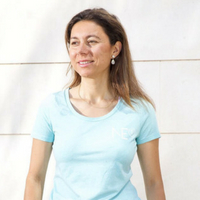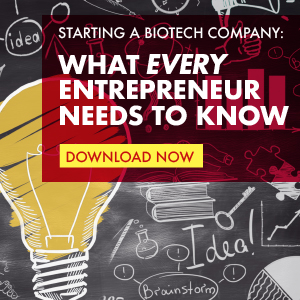
When it comes to tackling brain health maladies like depression, addiction, chronic pain and stroke rehabilitation, it’s no easy feat. However, innovative treatments and therapies for brain disorders are on the horizon. Neuroelectrics is a digital brain health company that seeks to reinvent the way we observe and treat the human brain with innovative hardware and software to research, diagnose and treat brain disorders through electroencephalography (EEG) and non-invasive stimulation. They’ve been making waves in the field and were even recognized as first runner-up for “Best business plan/investability” at BioPharm America™ 2017's startup competition. We recently caught up with CEO Ana Maiques to see where Neuroelectrics is today.
After being recognized at BioPharm America, what notable milestones have you hit since then?
Here at Neuroelectrics we are involved in several projects both in the US and in Europe.
Neuroelectrics is sponsoring a clinical trial under an open FDA IDE for approval of its Starstim™ product for the therapeutic treatment of drug-resistant epilepsy not well controlled with medications. Patients are currently being enrolled in the first study phase at Boston Children's Hospital and Beth-Israel Deaconess Medical Center in Boston. A follow-up pivotal study of ~90 patients is expected for an FDA approval to be completed by the end of 2019.
We are also sponsoring a 40-patient study at the Harvard Institute of Aging (at Harvard Medical School) to evaluate the use of Starstim™ as a therapeutic treatment for dementia, specifically how to improve cognition, gait and balance in seniors with the symptoms. Preventable medical costs because of falls are a major issue with this patient population. It is expected this study will lead to a follow-on study for FDA approval.
In Europe, we are working on developing a clinical trial for one of our devices to treat fibromyalgia to start later this year.
 Neuroelectrics was also awarded by Mass Challenge as one of the first PULSE digital health cohorts and was the only neuroscience company selected.
Neuroelectrics was also awarded by Mass Challenge as one of the first PULSE digital health cohorts and was the only neuroscience company selected.
How is the increasing general interest in machine learning and AI affecting your business prospects?
We are heavily investing in AI as a way to personalize brain therapy for different patients in need not only from a monetary perspective, but as key opinion leaders in our field. The director of operations, Steven Dunne, and I have been selected for panels locally and internationally to talk about the fundamental effects and possible implications of AI on different aspects of life.
What are some of the most compelling use cases of your technology?
We are also working in pre-symptomatic detection of Parkinson's disease with The Michael J. Fox Foundation, which has funded a 750-patient, three-year study on combining EEG with machine learning to develop biomarkers for Parkinson's disease, based on strong results from a previous 118-patient study that was able to identify Parkinson's in patients with sleep disorders five years or more before symptoms presented.
This case is compelling due to the use of AI with machine learning in regard to the development of biomarkers which can essentially be applicable to determine symptoms for many other diseases in addition to Parkinson’s before they become apparent.
What is your five-year vision for Neuroelectrics?
First and foremost, we hope to provide personalized brain therapies at home for many brain disorders that currently do not have an effective solution. We also hope to impact the medical industry, the economy, and society positively as the combination of advanced technology will reshape the landscape in the way that healthcare and treatment are administered and conceptualized. We intend to impact the way medical professions think about therapeutic recovery. This alternative way to diagnose and treat the brain addresses several challenges that have limited patient treatment options in the traditional sense. The first has been the challenge of neurologist acceptance and recommendation of new treatment modality beyond pills and referral to surgery, thus closing the open-loop diagnosis process. With continual guidance and dialogue with potential pharmaceutical partners encompassing physician education, market access, and distribution/support for home-use medical equipment (in a market not traditionally used to home-use products) we can increase treatment effectiveness and patient choice.
In tandem with ineffective or slow treatment, we can demonstrate meaningful clinical impact in patients who don't respond well to medication. By addressing a specific set of diseases and medical conditions that have been shown to have promise with our treatment, we can change the way that doctors help their patients.
Are you a startup? Break into the life science inner circle at BioPharm America. Build new relationships, that will help you to get ahead. Engage with high-caliber strategic partners and investors to advance your startup company.

